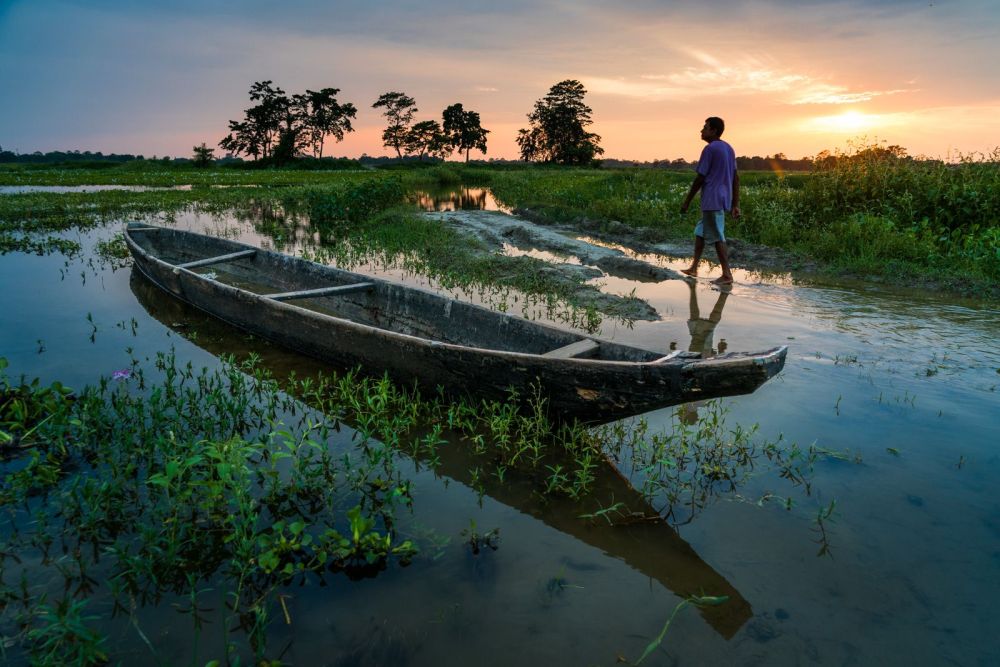

Located amidst the mighty Brahmaputra River in Assam, India, Majuli is famed for being one of the largest river islands in the world. The island has a rich cultural heritage, with a history that dates back centuries, making it an intriguing destination for tourists seeking a mix of natural beauty and cultural experiences.
The roots of tourism in Majuli are deeply entwined with its cultural and spiritual significance. In the 16th century, the island became a significant center for Neo-Vaishnavism, a religious movement led by Saint Sankardeva and his disciple Madhavdeva. They established Satras - monastic centers that became hubs for the Assamese culture, art, dance, and drama. Pilgrims and religious scholars have been visiting Majuli for its satras long before the concept of tourism took formal shape.
Due to its remote location and the challenges posed by the Brahmaputra's flooding, Majuli remained relatively untouched by the tourist map until the late 20th century. Infrastructure development in the latter half of the century started opening up opportunities for visitors to experience the island's unique way of life.
The latest trends in tourism in Majuli reflect a growing preference for sustainable and experiential travel:
With an increase in tourism, there are concerted efforts being made to preserve the delicate balance between development and maintaining the integrity of Majuli's natural and cultural heritage. The government and various NGOs are working to protect the island's environment and promoting responsible tourism practices.
If you're planning to visit Majuli, it's recommended to align your trip with the festive seasons, especially the harvest festival or the Raas festival, to fully experience the island's vibrant culture. However, keep in mind the monsoon season from June to September when the Brahmaputra's floods can make travel challenging.
In summary, the history of tourism in Majuli is still being written, as the island adapts to a burgeoning interest from visitors around the world while striving to maintain its enchanting allure and living traditions. When you decide to travel to Majuli, you're not just choosing a destination; you're choosing to step into a living museum of Assamese culture set against a backdrop of stunning natural beauty.